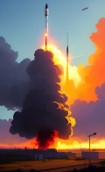|
That seems at odds with filial piety!
|
|
|
|

|
| # ? May 24, 2024 22:37 |
|
Hahaha, holy poo poo, did Archer really reference Operation Gladio tonight?? Awesome.
|
|
|
|
That's the one thing about China I think people forget when they are panicking about our impending overlords. Every time they've launched an invasion of something, they end up getting the poo poo kicked out of themselves. Tibet is right in their wheelhouse, but outside of that, they have a pretty terrible track record. They've fought wars with basically all of their neighbors since 1949, and haven't won a loving thing yet.
Seizure Meat fucked around with this message at 12:59 on Feb 17, 2012 |
|
|
|
VikingSkull posted:That's the one thing about China I think people forget when they are panicking about our impending overlords. Every time they've launched an invasion of something, they end up getting the poo poo kicked out of themselves. Tibet is right in their wheelhouse, but outside of that, they have a pretty terrible track record. They've fought wars with basically all of their neighbors since 1949, and haven't won a loving thing yet. Hubris and incompetence are not necessarily endearing characteristics in a nuclear-armed power. And even if they fight a bumblingly bad conventional war that still leaves a ton of opportunity for civilian casualties and collateral damage. Deterrence has its place regardless of the aggressor's odds at actually winning.
|
|
|
|
VikingSkull posted:That's the one thing about China I think people forget when they are panicking about our impending overlords. Every time they've launched an invasion of something, they end up getting the poo poo kicked out of themselves. Tibet is right in their wheelhouse, but outside of that, they have a pretty terrible track record. They've fought wars with basically all of their neighbors since 1949, and haven't won a loving thing yet. This is literally the opposite of the truth, since they've kicked the poo poo out of everyone they've fought - Indians, Americans/South Koreans, North Vietnamese (They captured all the cities they set out to capture and inflicted more casualties than they took which is A Thing when you're attacking fortified cities), South Vietnamese, etc. They didn't do so well against the Nationalists on Kinmen/Matsu or the Soviets. Throatwarbler fucked around with this message at 14:02 on Feb 17, 2012 |
|
|
|
Throatwarbler posted:This is literally the opposite of the truth, since they've kicked the poo poo out of everyone they've fought - Indians, Americans/South Koreans, North Vietnamese (They captured all the cities they set out to capture and inflicted more casualties than they took which is A Thing when you're attacking fortified cities), South Vietnamese, etc. They didn't do so well against the Nationalists on Kinmen/Matsu or the Soviets. Eh, I would take issue with describing the Korean intervention as "kicking the poo poo out of" the U.N. forces, since it's not like they pushed the U.N. forces all the way back to the Pusan Perimeter or anything...the fact that the U.N. forces were able to get the lines stabilized just south of the 38th parallel and eventually push back to roughly the 38th parallel before the stalemate set in is impressive, as was the fighting withdrawal of X Corps, especially given the tactical and strategic surprise and numerical odds they were operating against. The rest of what you said is pretty true, though.
|
|
|
Throatwarbler posted:This is literally the opposite of the truth, since they've kicked the poo poo out of everyone they've fought - Indians, Americans/South Koreans, North Vietnamese (They captured all the cities they set out to capture and inflicted more casualties than they took which is A Thing when you're attacking fortified cities), South Vietnamese, etc. They didn't do so well against the Nationalists on Kinmen/Matsu or the Soviets. The Korean War ended in a stalemate after the initial successes by Chinese forces. They managed to ensure the survival of the North Korean state but not much more than that can be tallied in the victory column. UN forces pushed the combined Nork/PVA forces back to the 38th parallel after being forced out of the North. The Sino-Indian War ended the border stabilizing in their favor(which was their main goal). Despite provoking the Chinese time and time again(and after receiving repeated warnings), the Indians failed to properly plan to fight the Chinese. The Chinese will admit that, despite achieving the limited strategic goals of the Sino-Vietnamese war(capture some border cities, threaten Hanoi, and disengage), the army performed poorly and China did not force Vietnam to adopt a more conciliatory attitude. Vietnam did not stop their 'imperial ambitions' in Cambodia. Casualties(depending on the reporting) were roughly the same. However, the war did highlight to the Vietnamese that the Soviet Union was not the ally they expected. The war also forced the Vietnamese to maintain a high state of readiness that hampered growth and limited the ability of Hanoi to conduct the reforms they desired. There is a common theme in all 3 of these conflicts: They(UN in Korea, India, Vietnam) poked the tiger and then wondered why it mauled them. edit: Here's a picture of a Cobra in Iraq. 
vains fucked around with this message at 15:37 on Feb 17, 2012 |
|
|
|
|
iyaayas01 posted:Eh, I would take issue with describing the Korean intervention as "kicking the poo poo out of" the U.N. forces, since it's not like they pushed the U.N. forces all the way back to the Pusan Perimeter or anything...the fact that the U.N. forces were able to get the lines stabilized just south of the 38th parallel and eventually push back to roughly the 38th parallel before the stalemate set in is impressive, as was the fighting withdrawal of X Corps, especially given the tactical and strategic surprise and numerical odds they were operating against. quote:The Korean War ended in a stalemate after the initial successes by Chinese forces. They managed to ensure the survival of the North Korean state but not much more than that can be tallied in the victory column. UN forces pushed the combined Nork/PVA forces back to the 38th parallel after being forced out of the North. Yeah come on guys the Battle of the Bulge wasn't so bad because at least it wasn't the Bataan death march quote:The Chinese will admit that, despite achieving the limited strategic goals of the Sino-Vietnamese war(capture some border cities, threaten Hanoi, and disengage), the army performed poorly and China did not force Vietnam to adopt a more conciliatory attitude. Vietnam did not stop their 'imperial ambitions' in Cambodia. Casualties(depending on the reporting) were roughly the same. The Cultural Revolution and all the economic disasters leading up to it had resulted in all its effective leaders being purged and imprisoned, and pretty much left the army a shadow of its former Korean war era glory and it's never recovered since. I think that's what was always said of the Russians - they are never nearly as terrifying or as inept as you think they are? It's probably more fair to say the historically the (communist) Chinese mostly managed to avoid any fights that they can't win (other than Vietnam). Throatwarbler fucked around with this message at 16:05 on Feb 17, 2012 |
|
|
|
The Indians got smoked in the Sino-Indian war and it wasn't remotely close. The Chinese war plan was to kick some rear end, then unilaterally draw back and press for SQAB, which they did quite successfully. When you accomplish exactly what you're intending to accomplish in a limited war AND win the battles that's a W.
|
|
|
|
iyaayas01 posted:Eh, I would take issue with describing the Korean intervention as "kicking the poo poo out of" the U.N. forces, since it's not like they pushed the U.N. forces all the way back to the Pusan Perimeter or anything...the fact that the U.N. forces were able to get the lines stabilized just south of the 38th parallel and eventually push back to roughly the 38th parallel before the stalemate set in is impressive, as was the fighting withdrawal of X Corps, especially given the tactical and strategic surprise and numerical odds they were operating against. The Chinese only achieved strategic surprise because MacArthur ignored the massive amounts of intelligence he was receiving that they would attack. At the tactical level, the intel was there for many units, and 1st Marine Division intentionally slowed their advance to Chosin, against orders, because they knew they were going to attacked and they didn't want to be left out to dry. The UN forces got spanked and the fact that they managed to hold at a stalemate halfway down the peninsula is not enough to call it even a draw, in my mind. Check out Coldest Winter by David Halberstam and Breakout: The Chosin Reservoir Campaign by Martin Russ for interviews with guys who were there who will support this.
|
|
|
|
iyaayas01 posted:Hahaha, holy poo poo, did Archer really reference Operation Gladio tonight?? Ha, yes they did! That was an awesome episode.
|
|
|
iyaayas01 posted:Hahaha, holy poo poo, did Archer really reference Operation Gladio tonight?? Okay, I'm going to have to start watching this show.
|
|
|
|
|
Bugdrvr posted:Ha, yes they did! That was an awesome episode. "Potato pa-dildo"
|
|
|
|
iyaayas01 posted:Eh, I would take issue with describing the Korean intervention as "kicking the poo poo out of" the U.N. forces, since it's not like they pushed the U.N. forces all the way back to the Pusan Perimeter or anything...the fact that the U.N. forces were able to get the lines stabilized just south of the 38th parallel and eventually push back to roughly the 38th parallel before the stalemate set in is impressive, as was the fighting withdrawal of X Corps, especially given the tactical and strategic surprise and numerical odds they were operating against. Let's not forget that South Korea actually gained territory in the war, which is not a bad outcome if you are invaded and overrun twice in the same war. You'd expect better on paper with the USSR giving minor air support and hundreds of thousands of Chinese boots on the ground. Also I probably was a bit unfair in saying the Chinese got the poo poo kicked out of them in war, I should rephrase it to say that the Chinese don't have any resounding military successes in the last 70 years or so outside of the border war with India. There's a lot of objectives completed and the like, but usually at a high cost. Vietnam and Korea most notably. Sure, they pushed the UN out from the Yalu, but giving the UN a bloody nose left them with a bloody nose and two black eyes. Seizure Meat fucked around with this message at 13:38 on Feb 20, 2012 |
|
|
|
VikingSkull posted:Let's not forget that South Korea actually gained territory in the war, which is not a bad outcome if you are invaded and overrun twice in the same war. You'd expect better on paper with the USSR giving minor air support and hundreds of thousands of Chinese boots on the ground. The troop numbers and casualties on both sides were about evenly matched in Korea. I guess there's nothing for me to argue here since you've not posted anything other than your opinion, but it's not an opinion shared by anyone knowledgeable on the subject.
|
|
|
|
Throatwarbler posted:The troop numbers and casualties on both sides were about evenly matched in Korea. I guess there's nothing for me to argue here since you've not posted anything other than your opinion, but it's not an opinion shared by anyone knowledgeable on the subject. Wait, what? I'm going to have to ask for SOME sources here. I'm not an expert on the Korean war by any stretch, but everything I've ever read has given the general impression that casualties on the Chinese/N.Korean side of the equation were significantly higher. Quickly checking WIkipedia - which cites both Chinese and N. AMerican studies, as well as official figures from both the DPRK and ROK - has casualties for the entire war standing at 36,000 US dead with approx 4x that many WIA/MIA/POW and China having either ~152,000 KIA with 4x WIA/MIA/POW (according to China) or ~400,000 dead and 2x that many WIA/POW/MIA (according to US estimates). Throw in the DPRK's 251,000 KIA and x2 that many WIA/KIA/POW and the ROK's 137,000 KIA (x4 WIA/KIA/POW) and - just talking about KIA - you end up with about 173,000 KIA on the UN side of the war and 367,000 KIA on the Communist side if we go with the Chinese figures and 615,000 KIA if we go with American figures. I'm not including the non-American UN casualties or the Russians in any of this, but the total figures for bot are pretty negligible - a few thousand and a few hundred respectively. I'm really not sure where you're getting the idea that casualties in the Korean war were about evenly matched. Everything I've ever seen on this subject, ranging from the ROK memorial museum in Seoul down through combat memoirs and on to the official government histories, has soldiers in the northern half of the conflict dying at a bare minimum of a 2:1 ratio to their southern counterparts according to the most conservative estimates, and as much as 4:1 if we go with the most speculative. The truth is probably somewhere in-between, but it's a goddamned far sight from parity.
|
|
|
|
The only way the casualties were "evenly matched" is if you add weight to the UN figures to reflect that the Chinese have huge armies and generally don't give a gently caress if they take mass casualties.
|
|
|
|
Cyrano4747 posted:Wait, what? I'm going to have to ask for SOME sources here. The wikipedia page for the Korean war casualties changes almost daily. Here is a Chinese source indicating a total of around 180,000 death in total on the Chinese side. The American estimates for Chinese casualties are...problematic to say the least. The 137,000 figure for South Korean deaths is *much* lower than estimates I had previously been familiar with which were in the order of 400,000 killed. Here is someone citing Max Hastings' book The Korean War as giving such a number. The wikipedia link appears to link to an Official ROK site but I can't read Korean and Google translate seems to be pretty bad at Korean. The South Korean figure is really the most important since the casualties for other countries including the US are fairly minor. The majority of the fighting after the North Korean collapse was between the Chinese and the South Koreans who made up 2/3s of the total UN force and a significant portion of many American units too, under the "KATUSA" program. I want to emphasize this because everything that you've ever read and your general impressions are going to be accounts about the American experience. The American forces were only about 1/3 of the total UN force and were fighting a defensive war for much of the time after the Chinese intervention. Since the American units had an obvious preponderance in firepower and were usually fighting from prepared defensive positions, it is likely that they did inflict more casualties than they took. However most American accounts tell very little about the South Korean units who were actually holding most of the line and bore the brunt of the Chinese attacks. Mostly it's just something like "Oh one day we got up and found xx ROK regiment streaming back through our lines in disorderly retreat, Haha those silly South Koreans what can you do eh.
|
|
|
|
Scratch Monkey posted:The only way the casualties were "evenly matched" is if you add weight to the UN figures to reflect that the Chinese have huge armies and generally don't give a gently caress if they take mass casualties. Except the Chinese never had any significant superiority in total numbers in the theatre.
|
|
|
|
Throatwarbler posted:The problem is that you're cherry picking high and low figures from different studies. The Hastings example is one of the highest casualty estimates that's out there. It's worth noting that he estimates 1.5 million combined KIA between the DPRK and the PRC during the conflict. In general he's a bit notorious for taking every inflated figure at face value. The problem with South Korean casualty figures is that they frequently get caught up in the civilian death totals as well. Let me just say flat out that civilian deaths across the peninsula as a whole were pretty outrageous - estimates go between 1 and 2 million total, but most of the people actually doing demographic studies tend towards the middle, at about 1.5. The "400,000 S. Korean military KIA" figure you cite is, again, one from Hastings and as best anyone can figure out he's including civilians in that total. That's also about what the DoD claims as the total between S. Korean civilian + military deaths, although defining what, exactly, a "south" or "north" Korean civilian is during this period is EXTREMELY hard to do and pretty much just an exercise in mental masturbation. Meanwhile, you seem to be accepting a lot of the official Chinese figures at face value, which leads to the lowest of possible estimates for deaths on the other side. Trying to estimate casualties for a war like this, where belligerents on both sides draw questionable lines between "military" and "civilian" and where record keeping outside of the UN forces is sketchy at best, is problematic in the extreme. That said, if you are going to attempt that kind of exercise you really need to stick to comparing figures from the same studies, as they will be the figures that are generated using the same methodologies. Regardless of the studies you look at, they all claim that there was a significant discrepancy between deaths on the China/DPRK side and the UN/ROK side, ranging anywhere from 2:1 to 4:1. I can't argue whether or not we're looking at a low end or high end estimate, but every study you look at indicates, at a bare minimum, a higher casualty rate on the Communist end of the equation.
|
|
|
|
Cyrano4747 posted:
The source gives an exact figure and the number of deaths is higher than the one given in the wiki because it was recently updated and it also includes non-combat death and civilian workers in rear areas, presumably casualties of American bombing. The problem with the American estimates of Chinese casualties is that there is no good reason to think the Americans had any way to know what Chinese casualties are. The Americans spent most of the war either retreating or holding a defensive line, and again American and western forces only made up a small portion of the total UN force. Given that American were so terrible at estimating actual Chinese troop strength, how would they have any idea what Chinese casualties were? It's far better to say that the American figure is one that was cooked up from questionable sources to save face for MacArthur in the light of his massive failure on the field. I've never had any reason to doubt the official records of either Chinese of American losses, but as I said the South Korean figure is much lower than what I had read previously and I haven't had much reason to think they were so far off, so I suppose if the South Korean records are as vague as you say then maybe there is some variance to the matter.
|
|
|
|
Throatwarbler posted:Except the Chinese never had any significant superiority in total numbers in the theatre. If the Chinese had wished to press their attack beyond early 1951 they would have had plenty of reserves to throw into the offensive.
|
|
|
|
Its always cute when people argue with our resident history sperg
|
|
|
|
Throatwarbler posted:I've never had any reason to doubt the official records of either Chinese of American losses, but as I said the South Korean figure is much lower than what I had read previously and I haven't had much reason to think they were so far off, so I suppose if the South Korean records are as vague as you say then maybe there is some variance to the matter. The key problem here is that you're drawing figures from multiple studies. This leads to apples-to-oranges comparisons where high and low estimates get intermixed and lead to strange results. Every study is going to have its own methodology, and each one is going to have its benefits and downsides. For combat deaths usually some kind of scholarly consensus is reached a few decades after the war by comparing archival records for the two opposing sides since, as you point out, self-reported numbers for KIA/WIA in one's own military tend to be fairly accurate. At the very least they're not completely divorced from reality, and in the cases where they are there is usually such an obvious political motivation behind the strange reporting that it isn't hard to call them into question and move on to some other way of getting at the statistics. Where things get iffy is when you're talking about a situation where records either weren't well kept, where records were destroyed, or where the situation was so chaotic (usually due to the country either being in a state of civil war or total governmental breakdown) that it's impossible to determine exactly what was going on at any specific point in time. As a recent example of this, I think it's fairly safe to say that the death total for each side in the recent Libyan civil war is going to be a contentious issue for some time. Even something as simple as defining the two sides or determining on which side a particular body was on is something that is open to debate. In the Korean example the figures we have from the Pentagon/DoD are kinda-sorta in line with the self-reported figures from the ROK itself, and are probably about correct-ish for military deaths. At the very least they're probably more reliable than Chinese estimates of S. Korean casualties which are problematic for the same reasons why 1950s US estimates of Chinese deaths are, and certainly more reliable than DPRK numbers, which are essentially just state propaganda. Where that leaves most researchers is having to try to come up with numbers by applying various statistical tools, frequently involving pre- and post-war population figures and using demography tools to determine what the "abnormal death rate" for the war-time period would be. For a really good example of this in other areas, look at the work that has been done trying to figure out just how many Russian jews were killed in the occupied areas of the USSR during WW2, a population for which real numbers has been really elusive for decades. Whatever methodology the researcher in question chooses, you really have to restrict your analysis and critique to that SINGLE ANALYSIS. When you mix and match studies you're bringing in all sorts of problems because of the different assumptions made by each one, different definitions of key concepts and populations, and different methods for calculating the death rate. As an aside, you also need to be aware of your source. As an example, Max Hastings is a British journalist who writes popular histories for mass consumption. His books tend to be pretty good about presenting the broad narrative, but he also tends towards the theatrical (part of which is accepting rather generous figures for things like deaths) precisely because he's trying to sell books.
|
|
|
|
BarkingSquirrel posted:Its always cute when people argue with our resident history sperg It's extra adorable when the one getting spanked by Cyrano can never be subdued, because the basic argument is over the fact that his methodology and grasp of statistics is terrible. It's like watching an argument over science where one side doesn't understand the scientific method. :historynerd: I anticipate that Throatwarbler will continue to stand his ground, because "it's just your opinion, man" and because of his  wanking. wanking.
|
|
|
|
Myoclonic Jerk posted:It's extra adorable when the one getting spanked by Cyrano can never be subdued, because the basic argument is over the fact that his methodology and grasp of statistics is terrible. It's like watching an argument over science where one side doesn't understand the scientific method. :historynerd: Yep, it's just your opinion man. That's exactly what I posted.
|
|
|
|
Throatwarbler posted:Yep, it's just your opinion man. That's exactly what I posted.
|
|
|
|
Cyrano4747 posted:The key problem here is that you're drawing figures from multiple studies. This leads to apples-to-oranges comparisons where high and low estimates get intermixed and lead to strange results. That's all well and good but what exactly is my "problem"? I didn't quote any studies, I just quoted what the official Chinese death figure actually was, no demographic studies are required. I didn't say anything about the figures for wounded precisely because of the issues you cite - the definition for wounded is not uniform across the different countries. Since you're not defending the American estimate for Chinese casualties, I agree with you on everything else. Is there an authorization figure for South Korean casualties that you are putting forward?
|
|
|
|
ADAB is awesome, I want to live there. Seriously, the Army could freeze me at my current pay/rank/position with only the annual raises and just have me do 6 months on 1 year off rotations to ADAB for the next 15 years and I'd probably sign up. What I'm saying is that I should have joined the USAF and our HIMAD forces probably should have been integrated with the Air Force a couple of dozen years ago. Flying nonstop from Abu Dhabi to Chicago is a bitch, though.
|
|
|
|
Throatwarbler posted:Is there an authorization figure for South Korean casualties that you are putting forward? No, I'm just pointing out the major issue in your presentation of your original argument: Throatwarbler posted:The troop numbers and casualties on both sides were about evenly matched in Korea. I guess there's nothing for me to argue here since you've not posted anything other than your opinion, but it's not an opinion shared by anyone knowledgeable on the subject. Correct me if I'm wrong, but your general argument over the last two pages has been that the PRC was, at worst, evenly matched with its opponents in every 20th century conflict that they have been involved in. You specifically stated that they were evenly matched in terms of troop numbers (so no massive numerical Chinese advantage) in the Korean war and that they suffered roughly the same number of casualties as the opposing forces. In support of this you brought forward figures taken from numerous different studies, hence my insistence on the importance of comparing figures from within the same study, due to the methodological difficulties that I outlined above. If you look at each study individually, they all tend to give ratios for Communist vs. UN deaths that rage from 2:1 to 4:1. What you were doing to achieve your parity of combat deaths was comparing the communist losses in the most conservative studies to the UN losses in those claiming the most total deaths. The 400,000 figure for S. Korean deaths that you used to claim parity initially (while choosing the most conservative figures for the communist losses) comes from a work that claims a whopping 1.5 million deaths for the communists. The point is that studies can arrive at very different numbers based on how they calculate the casualties, but that all of them, regardless of source, indicate a higher total of dead among the DPRK/PRK forces than the ROK/UN forces. I don't want to get into the whole issue of the S. Korean total casualty figures for the war as a whole as they are complicated, especially where civilians come in. What I will say is that when it comes to specifically combat deaths of soldiers the ROK MOD figures are as roughly in-line with reality as we are likely to get, and at the very least no more or less hosed than PRC figures for the same, and no more or less politically driven. If anything, given the memory politics of the two countries, I would expect the PRC numbers to be slightly low and the ROK MOD figures to be somewhat inflated. My Korean is REALLY loving rusty. I never properly spoke it, and it's been years since I lived out there and had to read it, but I still have a bit. The official ROK MOD casualty figures are here, and in han gul. Like I said, I'm poo poo with Korean these days, so maybe someone like LImburgher Limbo will come along and give a better summery than I will, but at the very least I can still recognize 한 국 as "han gook" which means "Korean" and korean wikipedia tells me that 전사 means KIA, so we've got 137,000 as the number of KIA claimed by the South Korean military based on their own records. (edit: Further poking in a dictionary shows "사망" as meaning "death" so that 137,000 figure would appear to be for "KIA/dead" which I'm guessing is their way of saying total military dead from whatever cause). Either way, my initial point still stands that no matter how you slice it, no matter whose figures you look at, no matter which studies you trust, the idea that there was parity between deaths suffered by the two sides in the Korean War is pretty patently false and not even argued by anyone other than you, either in the scholarly community or among the governmental sources. Cyrano4747 fucked around with this message at 21:04 on Feb 20, 2012 |
|
|
|
Cyrano4747 posted:
I did no such thing, the only figure I brought forward was the official Chinese figure for dead. The source also contained figures for wounded but I did not quote it for reasons I already said. quote:If you look at each study individually, they all tend to give ratios for Communist vs. UN deaths that rage from 2:1 to 4:1. What you were doing to achieve your parity of combat deaths was comparing the communist losses in the most conservative studies to the UN losses in those claiming the most total deaths. The 400,000 figure for S. Korean deaths that you used to claim parity initially (while choosing the most conservative figures for the communist losses) comes from a work that claims a whopping 1.5 million deaths for the communists. The point is that studies can arrive at very different numbers based on how they calculate the casualties, but that all of them, regardless of source, indicate a higher total of dead among the DPRK/PRK forces than the ROK/UN forces. I don't understand where you are getting "studies" from. Your original post contained only quotes from wikipedia. Again I brought forward no studies at any point in any of my posts, only the actual offical Chinese tally. Maybe because I didn't bother to keep going back to copy and past exact numbers this is giving you the impression that this is some kind of demographic study, it is not. The figure is 183,108. There is no dispute on the numbers of American deaths, right around 40,000, and neither your or I have anything really to add to the wikipedia figure of 215,000 deaths for North Korea. So total Chinese and north Korean deaths are right around 400,000. If South Korean deaths were 400,000, then the number of deaths for the entire war is about equal on both sides, and that's what I said. If South Korean deaths were actually 137,000 as wikipedia now says, then I am wrong, but this is a figure that I have not seen before and I've checked the Korean war wiki page in the past, so you'll forgive me for being a little apprehensive about it at first since I can't read Korean and can't verify the source. quote:Either way, my initial point still stands that no matter how you slice it, no matter whose figures you look at, no matter which studies you trust, the idea that there was parity between deaths suffered by the two sides in the Korean War is pretty patently false and not even argued by anyone other than you, either in the scholarly community or among the governmental sources. Except the only figure that is/was at issue here is whether there are 400,000 dead South Koreans or 137,000.
|
|
|
|
You are taking the ROK stats from one source and the PRK/China stats from another source. Both sources have ROK deaths lower than PRK/China. One just has overall larger numbers than the other.
|
|
|
|
mlmp08 posted:You are taking the ROK stats from one source and the PRK/China stats from another source. No, there are multiple pieces of information from multiple sources. 1 is the Chinese source for the Chinese casualties, which does not make mention of what the Chinese thought South Korean casualties are and in any case why would I trust that figure, one is the South Korean mil.kr website with the lower figure for SK deaths and one is the Max Hastings quote I put forward with the high figure for SK deaths. EDIT: Cyrano also mentions in passing an American "Pentagon/DoD" figure for South Korea but there was no link and I haven't found it yet. Throatwarbler fucked around with this message at 22:13 on Feb 20, 2012 |
|
|
|
dude. http://necrometrics.com/20c1m.htm#Ko Studies seem to disagree about how many died on each side, but most every study out there still has the ROK losing less than China. It gets even more lopsided when you combine "all ROK supporters" vs. "all PRK supporters."
|
|
|
|
Throatwarbler posted:No, there are multiple pieces of information from multiple sources. 1 is the Chinese source for the Chinese casualties, which does not make mention of what the Chinese thought South Korean casualties are and in any case why would I trust that figure, one is the South Korean mil.kr website with the lower figure for SK deaths and one is the Max Hastings quote I put forward with the high figure for SK deaths. I like how this post was about 4 times as long before it was edited. Though based on precedent, I'm sure you'll argue that it was really about 8 times as long.
|
|
|
|
mlmp08 posted:dude. Except for the ones that don't. I'm also baffled as to why you insist that if I were to use one source for one figure then I must also give equal consideration for that source on all other figures. I haven't and am not going to give equal consideration for the Chinese estimate of American casualties as the American official figure for American casualties.
|
|
|
|
BarkingSquirrel posted:I like how this post was about 4 times as long before it was edited. Though based on precedent, I'm sure you'll argue that it was really about 8 times as long. You've sure convinced me of the error of my ways. Thanks for this valuable post.
|
|
|
|
But you can't use the Hastings source for a high number just because you want to and then use a different source for a Chinese low number so you can say "Hey look these numbers are approximately equal!" How is your basic understanding of statistics this bad?
|
|
|
|
Totally TWISTED posted:But you can't use the Hastings source for a high number just because you want to and then use a different source for a Chinese low number so you can say "Hey look these numbers are approximately equal!" Yeah, this is the crux of the issue, Throatwarbler. I get that you think Chinese numbers are suspect. I also think this. But as a result you've taken the numbers for the ROK dead from one source and the numbers of Chinese deaths from a totally different source. Sometimes you can kind of do this due to a clear bias in the sources (for example, a national study which takes care to accurately report its own losses, but makes up some bullshit about foreign losses). You've made no case for doing this, so your insistence on cherry-picking stats is baffling.
|
|
|
|

|
| # ? May 24, 2024 22:37 |
|
Totally TWISTED posted:How is your basic understanding of statistics this bad? <derail>I'm of the opinion that AP Statistics should be mandatory in high school. It's not particularly hard and goddamn is it useful. I frequently used it during college (History Major) and I use it frequently in my dayjob (Online Community Manager/Webmaster - much use of Google Analytics). An understanding of statistics and polling is a huge part of being an informed citizen - it allows you to dissect the bullshit statistics that news organizations and politicians like to throw at you. You can also manipulate the way the statistics are displayed in your own reports to make you look better at work! An understanding of things like "don't cherrypick from different sources using different methodologies" is also handy if you value intellectual honesty. </derail>
|
|
|






















